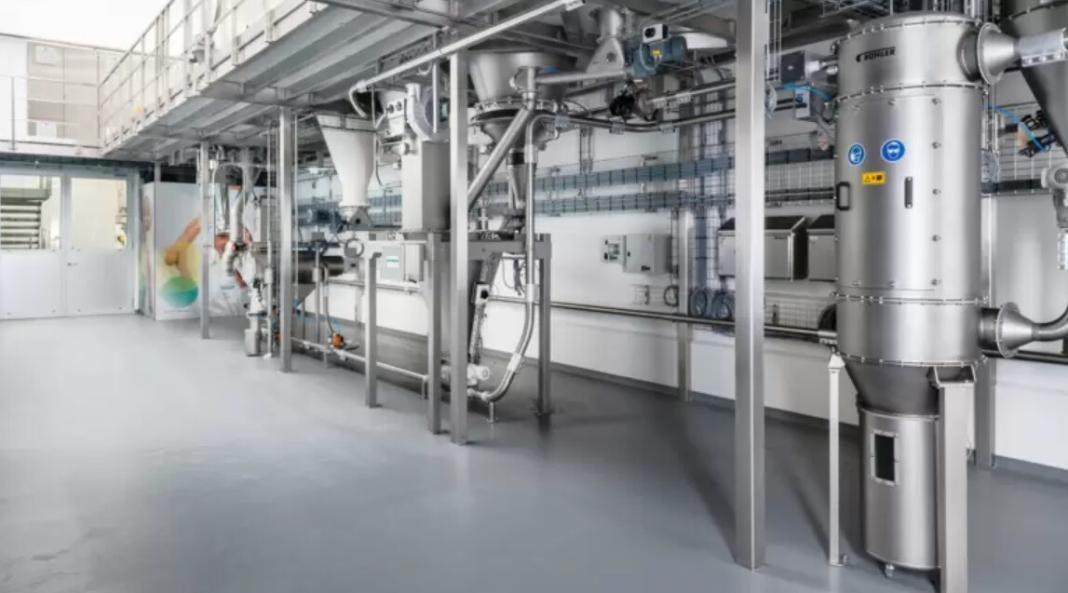Food manufacturing in the United Kingdom is a major industry that is governed by strict rules and regulations to ensure food safety, quality, and hygiene practices. Among the different materials used in food processing, food-grade stainless steel is a must. This material is important not only for its durability and resistance to erosion but also for its ability to maintain the highest standards of cleanliness and safety. This blog post will discuss why stainless steel is important in the UK food industry, and how it works with ducting frameworks to improve food processing and storage.
Durability and Longevity
One of the main reasons why stainless steel is the preferred material in the UK food manufacturing industry is due to its extreme versatility and strength, making it suitable for dealing with the harsh conditions found in food processing facilities. Whether exposed to high heat, moisture, or harsh cleaning chemicals, food-grade stainless steel retains its structural integrity over time. This extended life expectancy saves businesses money in the long run as stainless steel equipment does not need to be replaced as frequently.
Corrosion Resistance
Corrosion is a major concern in the food industry as it can lead to contamination and compromise food safety. Food-grade stainless steel is extremely corrosion resistant, even when exposed to acidic and alkaline meals, cleaning agents, and high humidity and moisture. This resistance stems from the presence of chromium, which forms a protective layer on the steel’s surface, preventing rust and degradation. In the UK food manufacturing sector, where hygiene and safety regulations are stringent, stainless steel’s corrosion resistance is a significant benefit.
Hygiene and Cleanliness
Hygiene is one of the most important aspects of food production and storage. Food-grade stainless steel has a non-porous surface that is easy to clean and sanitize, preventing the buildup of bacteria, mold, and other pathogens. This is especially crucial in the UK, where stringent food safety rules demand thorough cleaning processes. Standard disinfectants and cleaning solutions can be used to properly clean stainless steel surfaces without causing any damage. This guarantees that food contact surfaces are safe and free of contamination.
Chemical Resistance
The food manufacturing industry cleans and sanitizes its equipment with several chemicals. Food-grade stainless steel can tolerate a variety of chemicals, including those used in the food processing industry. This chemical resistance ensures that the material remains intact even after repeated exposure to cleaning solutions. For UK businesses, this entails maintaining excellent hygienic standards while preventing equipment depreciation.
Integration with Ducting Systems
In food processing facilities, ducting systems are critical for ensuring air quality and environmental management. Stainless steel is an excellent choice for ducting in the UK food industry due to its corrosion resistance, durability, and simplicity of cleaning. Stainless steel ducting ensures that the air circulating throughout the facility is clear of impurities and that the ducts do not become a source of contamination. The use of stainless steel in ducting systems improves the overall hygiene and safety of food processing settings.
Compliance with Regulations
The UK food industry is governed by strict rules and standards that ensure food safety and quality. Food-grade stainless steel meets these criteria, making it a dependable material for food processing equipment and infrastructure. Using stainless steel allows firms to meet regulatory requirements while avoiding potential penalties or product recalls due to contamination. This compliance is critical for retaining consumer trust and guaranteeing the long-term survival of food businesses in the UK.
Versatility and Application
Food-grade stainless steel is extremely versatile and can be utilized in a variety of applications in the food industry. Stainless steel is a versatile material that may be used for a variety of applications, including countertops, storage tanks, conveyor belts, and ducting. Its versatility enables manufacturers to create equipment that maximizes efficiency while meeting specific processing requirements. In the United Kingdom, where the food industry spans a wide range of sectors, from dairy and meat processing to bakeries and breweries, stainless steel’s adaptability is a valuable asset.
Sustainability
Sustainability is becoming an increasingly essential factor for businesses in the UK food industry. Stainless steel is a sustainable material because it is fully recyclable. Stainless steel equipment can be recycled and utilized after its lengthy service life, decreasing environmental effects. Furthermore, the resilience and lifespan of stainless steel result in fewer replacements and less resource usage over time. By using stainless steel, the UK food business may help to create a more sustainable future.
Use Food Grade Stainless Steel to Ensure Standards and Compliance
Food-grade stainless steel is a must in the UK food manufacturing industry thanks to its durability, corrosion resistance, ease of cleaning, and adherence to hygiene standards. Its integration into ducting systems improves food safety by maintaining clean air circulation throughout processing plants. As the UK food sector prioritizes safety, quality, and sustainability, food-grade stainless steel is an essential component in meeting these standards. Businesses that invest in stainless steel equipment and infrastructure can ensure they meet regulatory standards, preserve employee and customer health, and maintain a competitive advantage in the market.
You may also like,







